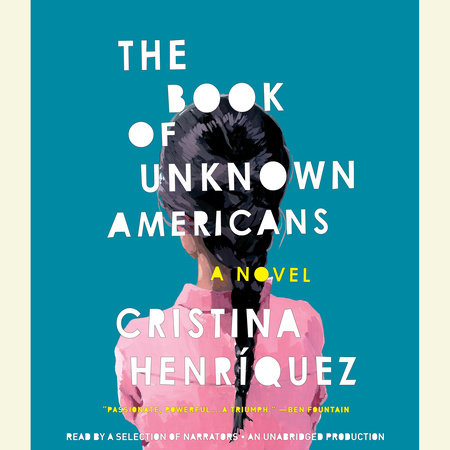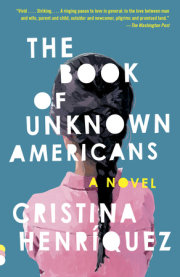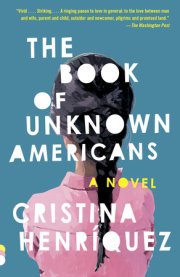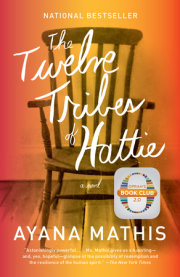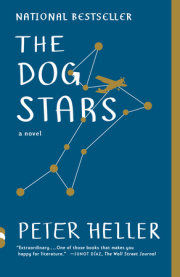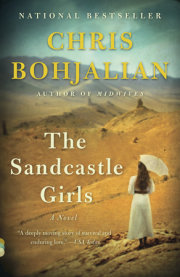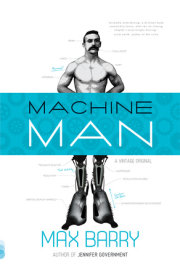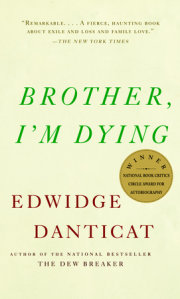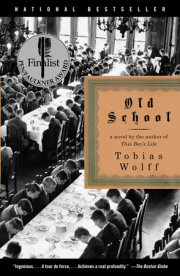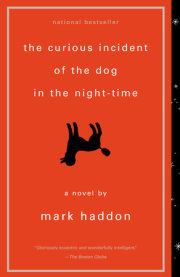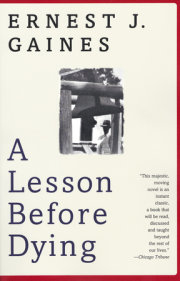Mayor
We heard they were from México.
“Definitely,” my mom said, staring at them through our front window as they moved in. “Look at how short they are.” She let the curtain fall back in place and walked to the kitchen, wiping her hands on the dish towel slung over her shoulder.
I looked, but all I saw was three people moving through the dark, carrying stuff from a pickup truck to unit 2D. They cut across the headlights of the truck a few times, and I made out their faces, but only long enough to see a mom, a dad, and a girl about my age.
“So?” my dad asked when I joined him and my mom at the dinner table.
“I couldn’t really see anything,” I said.
“Do they have a car?”
I shook my head. “The truck’s just dropping them off, I think.”
My dad sawed off a piece of chicken and stuffed it in his mouth. “Do they have a lot of things?” he asked.
“It didn’t seem like it.”
“Good,” my dad said. “Maybe they are like us, then.”
We heard from Quisqueya Solís that their last name was Rivera.
“And they’re legal,” she reported to my mom over coffee one afternoon. “All of them have visas.”
“How do you know?” my mom asked.
“That’s what Nelia told me. She heard it from Fito. Apparently the mushroom farm is sponsoring them.”
“Of course,” my mom said.
I was in the living room, eavesdropping, even though I was supposed to be doing my geometry homework.
“Well,” my mom went on, clearing her throat, “it will be nice to have another family in the building. They’ll be a good addition.”
Quisqueya took a quick look at me before turning back to my mom and hunching over her coffee mug. “Except . . . ,” she said.
My mom leaned forward. “What?”
Quisqueya said, “The girl . . .” She looked at me again.
My mom peered over Quisqueya’s shoulder. “Mayor, are you listening to us?”
I tried to act surprised. “Huh? Me?”
My mom knew me too well, though. She shook her head at Quisqueya to signal that whatever Quisqueya was going to say, she’d better save it if she didn’t want me to hear it.
“Bueno, we don’t need to talk about it, then,” Quisqueya said. “You’ll see for yourself eventually, I’m sure.”
My mom narrowed her eyes, but instead of pressing, she sat back in her chair and said loudly, “Well.” And then, “More coffee?”
We heard a lot of things, but who knew how much of it was true? It didn’t take long before the details about the Riversa began to seem far- fetched. They had tried to come into the
United States once before but had been turned back. They were only staying for a few weeks. They were working undercover for the Department of Homeland Security. They were personal friends with the governor. They were running a safe house for illegals. They had connections to a Mexican narco ring. They were loaded. They were poor. They were traveling with the circus.
I tuned it all out after a while. School had started two weeks earlier, and even though I had told myself that this would be the year the other kids stopped picking on me, the year that I actually fi t in for once in my life, things already weren’t going exactly as planned. During the first week of school, I was in the locker room, changing into my gym shorts, when Julius Olsen tucked his hands into his armpits and started flapping his arms like wings. “Bwwaak!” he said, looking at me. I ignored him and cinched the drawstring on my shorts. Actually, they were my older brother Enrique’s shorts that had been handed down to me, but I wore them because I thought that maybe they would make me seem cooler than I was, like maybe some of Enrique’s popularity was trapped in the fibers and would rub off on me. He’d been a senior the year before, when I was a freshman, and every single person in the school had adored him. Soccer stud. Girlfriends by the dozen. Homecoming king. So opposite of me that when I tried to earn points with Shandie Lewis, who I would have given just about anything to hook up with, by telling her that I was Enrique Toro’s brother, she said that was a really stupid thing to lie about.
“Bwwaaaak!” Julius said louder, jutting his neck toward me.
I balled up my jeans and shoved them into my locker.
Garrett Miller, who had basically made picking on me last year his special project, pointed at me, laughed, and said, “Fucking chicken legs.” He flung his boot at my chest.
Julius snorted.
I took a deep breath and shut my locker. I was used to this kind of abuse. Last year, whenever Enrique caught wind of it, he’d tell me to stand up for myself. “I know you don’t want to fight,” he said once. “But at least have the balls to tell them to fuck off.” And in my head I did. In my head, I was Jason Bourne or Jack Bauer or James Bond or all three of them combined. But beyond my head, the most I ever did was ignore it and walk away.
“How do you say ‘chicken’ in Spanish?” Garrett asked.
“Pollo,” someone answered.
“Major Pollo,” Garrett said.
The kids at my school loved changing my first name to English and then tacking insults onto it. Major Pan (short for Panamanian). Major Pan in the Ass. Major Cocksucker.
Julius started cracking up, and he squawked at me again. A few of the other guys in the locker room snickered.
I started walking— I just wanted to get out of there— but when I did, I bumped Garrett’s boot, which was on the floor in front of me.
“Don’t touch my shoe, Pollo,” Garrett said.
“Kick it over here,” Julius said.
“Fuck you,” Garrett snapped. “Don’t tell him to kick my shoe.”
“Don’t worry,” Julius said. “He can’t kick for shit. Haven’t you seen him out there after school trying to play soccer? He’s a total fuckup.”
“Major fuckup,” Garrett said, stepping in front of me to block any hope I had of leaving.
Garrett was thin, but he was tall. He wore a green army coat every single day, no matter what the weather was, and had a tattoo of an eagle on his neck. The year before, he’d spent a few months in juvenile detention at Ferris because he beat up Angelo Puente so bad that by the end of it, Angelo had two broken arms and blood pouring out of his nose. There was no way I was going to mess with him.
But when the bell rang and the other kids started fi ling out into the gym, Garrett still didn’t budge. The locker room was in the school basement and it was so quiet right then that I could hear water coursing through the pipes. There wasn’t anywhere for me to go. Garrett took a step closer. I didn’t know what he was going to do. And then Mr. Samuels, the gym teacher, poked his head into the room.
“You boys are supposed to be out in the gym,” he said.
Garrett didn’t move. Neither did I.
“Now!” he barked.
So that was one thing. The other thing, as Julius had pointed out, was soccer. The only reason I’d gone out for the team in the first place was because my dad had forced me into it. For him, the logic went something like: I was Latino and male and not a cripple, therefore I should play soccer. Soccer was for Latinos, basketball for blacks, and the whites could keep their tennis and golf as far as he was concerned. He’d applied the same reasoning to my brother, too, except that in Enrique’s case, it had actually worked out. Enrique had been the fi rst player in the history of our school to make varsity as a freshman, and when he got a full- ride soccer scholarship to Maryland, it was like my dad had been vindicated. “See?” he’d said, waving around the offer letter when it came in the mail. “You were meant to do this! The next Pelé! And this one,” he’d said, pointing at me, “the next Maradona!”
Enrique might have been the next Pelé, but I wasn’t even in the same galaxy as Maradona. Two weeks into practice, I had bruised shins, a scabby knee, and a scraped elbow. Coach even pulled me aside once to ask whether I was wearing the right size cleats. I told him they were size seven, which was my size, and he patted my shoulder and said, “Okay, then. Maybe you should just sit it out for a while,” and directed me to the sidelines.
In the past few days, a flock of girls had started coming to our practices, sitting in the empty stands and pointing at us while they texted and talked. Word got around that they were new freshmen. They didn’t look like any freshmen I knew, in their skimpy tank tops and lacy black bras they wore underneath, but what I did know was that our team got a hell of a lot better after those girls showed up. Everyone was running faster and kicking harder than before. I felt like a loser, hanging around the sidelines all the time. Whenever the girls broke out in laughter,
I was sure they were laughing at me. One day, I asked Coach if I could go back in, even if just for a few drills. When he looked ambivalent, I lied and said, “I’ve been practicing with my dad at home. Even he thinks I’m getting better.” Coach worked his jaw from side to side like he was thinking about it. “Please?” I said. Finally he gave in. “Okay. Let’s see what you got.”
We set up a star drill where guys spread out into a circle and dribbled the ball a few paces into the middle before passing to a teammate who took the ball and repeated the sequence. Each time I ran through and got back in line, I looked up at the girls in the stands, who weren’t laughing anymore, just watching. Maybe I got overconfident. Maybe there was a divot in the grass. The next time I ran into the middle to get the ball, my ankle turned. Ethan Weisberg was stepping toward me, waiting for me to pass to him. I was so eager to get the dribble going again that when I went for the ball with my other foot, I rolled my cleat up over it instead. The ball was still spinning, and I stumbled again just as Ethan, impatient and frustrated, finally came at me and tried to spear his foot in to swipe the ball out for himself. When he did, I fell. His leg caught under mine. And before either of us knew it, I had taken him down, both of us landing on top of each other in the middle of the field. “What the fuck, Mayor!” Ethan yelled. My hip throbbed. Coach blew his whistle and jogged in to untangle us. The girls erupted in laughter.
Copyright © 2014 by Cristina Henriquez. All rights reserved. No part of this excerpt may be reproduced or reprinted without permission in writing from the publisher.

